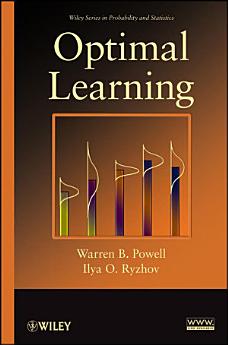Optimal Learning
ഈ ഇ-ബുക്കിനെക്കുറിച്ച്
Everyday decisions are made without the benefit of accurate information. Optimal Learning develops the needed principles for gathering information to make decisions, especially when collecting information is time-consuming and expensive. Designed for readers with an elementary background in probability and statistics, the book presents effective and practical policies illustrated in a wide range of applications, from energy, homeland security, and transportation to engineering, health, and business.
This book covers the fundamental dimensions of a learning problem and presents a simple method for testing and comparing policies for learning. Special attention is given to the knowledge gradient policy and its use with a wide range of belief models, including lookup table and parametric and for online and offline problems. Three sections develop ideas with increasing levels of sophistication:
- Fundamentals explores fundamental topics, including adaptive learning, ranking and selection, the knowledge gradient, and bandit problems
- Extensions and Applications features coverage of linear belief models, subset selection models, scalar function optimization, optimal bidding, and stopping problems
- Advanced Topics explores complex methods including simulation optimization, active learning in mathematical programming, and optimal continuous measurements
Each chapter identifies a specific learning problem, presents the related, practical algorithms for implementation, and concludes with numerous exercises. A related website features additional applications and downloadable software, including MATLAB and the Optimal Learning Calculator, a spreadsheet-based package that provides an introduction to learning and a variety of policies for learning.
രചയിതാവിനെ കുറിച്ച്
WARREN B. POWELL, PhD, is Professor of Operations Research and Financial Engineering at Princeton University, where he is founder and Director of CASTLE Laboratory, a research unit that works with industrial partners to test new ideas found in operations research. The recipient of the 2004 INFORMS Fellow Award, Dr. Powell is the author of Approximate Dynamic Programming: Solving the Curses of Dimensionality, Second Edition (Wiley).
ILYA O. RYZHOV, PhD, is Assistant Professor in the Department of Decision, Operations, and Information Technologies at the Robert H. Smith School of Business at the University of Maryland. He has made fundamental contributions to bridge the fields of ranking and selection with multiarmed bandits and optimal learning with mathematical programming.




